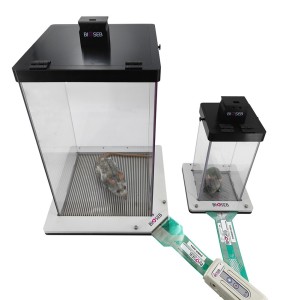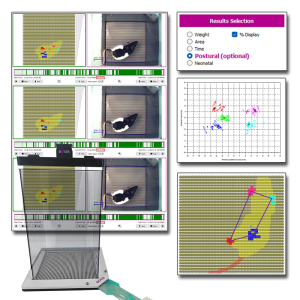Authors
K Miyano, M Ikehata, K Ohshima et al
Lab
The Jikei University School of Medicine, Nishishimbashi, Minato-ku, Tokyo, Japan
Journal
PLOS One
Abstract
Mesenchymal stem cells (MSCs), which are isolated from adipose tissue (AD-MSCs), umbilical cord (UC-MSCs), or bone marrow, have therapeutic potential including anti-inflammatory and immunomodulatory activities. It was recently reported that MSCs are also effective as a therapeutic treatment for neuropathic pain, although the underlying mechanisms have yet to be resolved. Therefore, in this study, we investigated the effects of human AD- and UC-MSCs on neuropathic pain and its mechanisms using rat models of partial sciatic nerve ligation (PSNL). AD- or UC-MSCs were intravenously administered 4 days after PSNL. Antinociceptive effects were then evaluated using the von Frey and weight-bearing tests. We found that, 3Ð9 days after the administration of AD- or UC-MSCs to PSNL-exposed rats, both the mechanical threshold and differences in weight-bearing of the right and left hind paws were significantly improved. To reveal the potential underlying antinociceptive mechanisms of MSCs, the levels of activation transcription factor 3- and ionized calcium-binding adapter molecule 1-positive cells were measured by immunohistochemical analysis. AD- and UC-MSCs significantly decreased the levels of these proteins that were induced by PSNL in the dorsal root ganglia. Additionally, UC-MSC significantly improved the PSNL-induced decrease in the myelin basic protein level in the sciatic nerve, indicating that UC-MSC reversed demyelination of the sciatic nerve produced by PSNL. These data suggest that AD- and UC-MSCs may help in the recovery of neuropathic pain via the different regulation; AD-MSCs exhibited their effects via suppressed neuronal damage and anti-inflammatory actions, while UC-MSCs exhibited their effects via suppressed neuronal damage, anti-inflammatory actions and remyelination.
BIOSEB Instruments Used
Dynamic Weight Bearing 2.0 (BIO-DWB-DUAL)
Source :

 Pain - Thermal Allodynia / Hyperalgesia
Pain - Thermal Allodynia / Hyperalgesia Pain - Spontaneous Pain - Postural Deficit
Pain - Spontaneous Pain - Postural Deficit Pain - Mechanical Allodynia / Hyperalgesia
Pain - Mechanical Allodynia / Hyperalgesia Learning/Memory - Attention - Addiction
Learning/Memory - Attention - Addiction Physiology & Respiratory Research
Physiology & Respiratory Research











![Dynamic Weight Bearing 2.0 – Postural Module [Add-on]](https://bioseb.com/733-home_default/dynamic-weight-bearing-20-add-on-postural-module.jpg)
























 Pain
Pain Central Nervous System (CNS)
Central Nervous System (CNS) Neurodegeneration
Neurodegeneration Sensory system
Sensory system Motor control
Motor control Mood Disorders
Mood Disorders Other disorders
Other disorders Muscular system
Muscular system Joints
Joints Metabolism
Metabolism Cross-disciplinary subjects
Cross-disciplinary subjects CONFERENCES & MEETINGS
CONFERENCES & MEETINGS 
